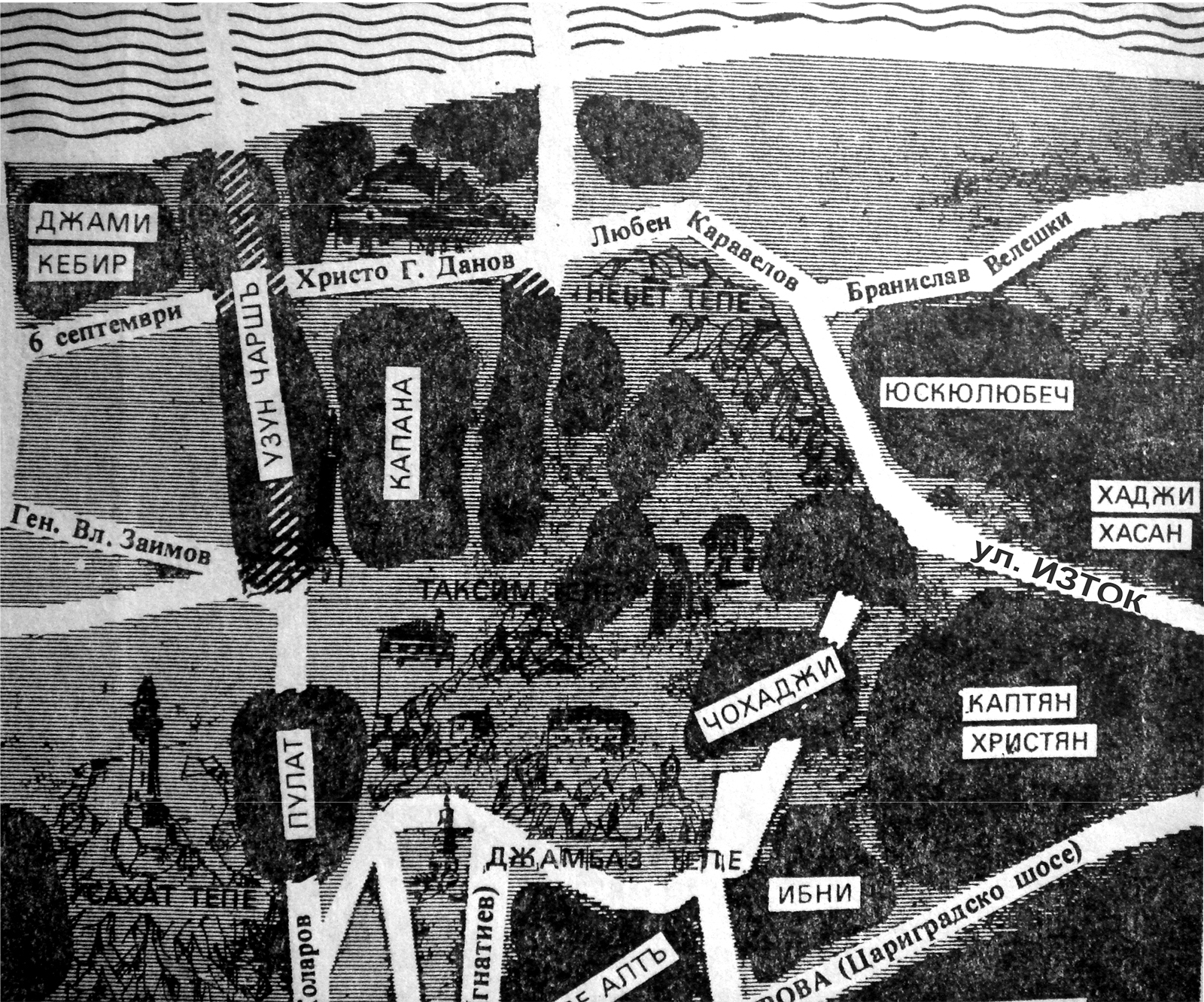The Transformations of the Oldest Ethnic Neighbouthood

A picture of the neighbourhood at the beginning of the twentieth century, after Nikola Alvadzhiev, Ralitsa Ivanova’s thesis, 2010.
In the oldest neighbourhood in Plovdiv, populated with Turkish and Roma residents, Hadzhi Hassan or Adzhissana, there have been changes throughout the years. These were accompanied by changes in the standard of life; here, Guldan says, people are “cleaner”, “more cultured” and “there are no abominations”, “no drug addicts”. Some things, nevertheless, are just the same: children are out of doors, playing all day; men gather in the streets; women are mostly at home in daytime, housekeeping, unless it is time to celebrate something or other, and then the entire neighbourhood is outdoors to enjoy themselves.
It comes as a surprise how such a small territory, which is not frequented by outsiders, supports so many shops. Those with vacant living space open shops to sell clothes or food, and the competition amongst groceries is great. Potential clients are the neighbours but Turkish students, Guldan says, who have found out about her shop, make a point of coming back to it. Some sell Turkish goods on stalls in front of their houses, others trade in carpets, shoes, meat or, else, they open snack shops for different types of pastry, but the most remarkable of them are the ones that go around the neighbourhood with “stalls on wheels” and offer chick-peas dishes, Arabic flat breads, and other treats. Due to its location in close proximity to the centre of town, this neighbourhood is not isolated from the rest of Plovdiv. For its residents going out of it is common practice and a matter of socialising. To walk up and down the high street along with the other residents of Plovdiv, to be seen or to mingle with the others – this is perfectly normal for them. While the younger generation dress “fashionably” and you cannot tell them apart from their Bulgarian peers, the older generation and married women stand out.
Ralitsa Ivanova’s thesis in Ethnology, 2010.
